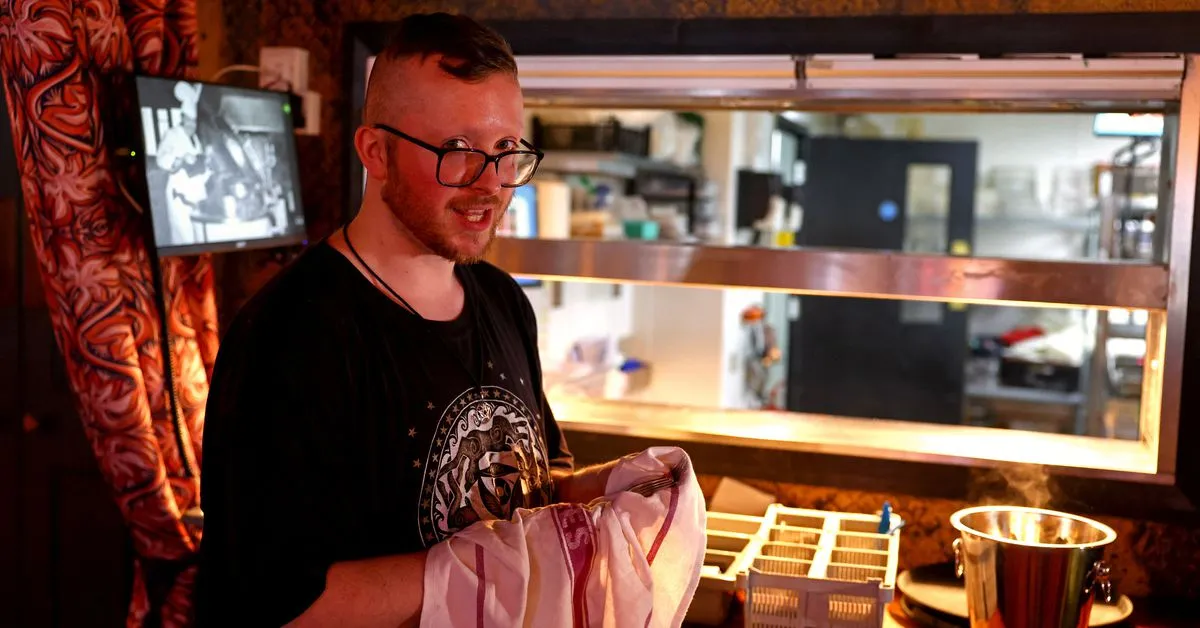Flexible hours, sick pay and meals: British workers get a better deal
Flexible hours, sick pay and meals: British workers get a better deal

Flexible hours, sick pay and meals: British workers get a better deal

BRIGHTON, England, Oct 2 (Reuters) - For Josh Hughes-Davies, the best thing about his job in a bar in the coastal city of Brighton is the free meal with every shift.
For his manager, Barrie Chapman, the overtime he now gets is a huge boost once unheard of in the hospitality sector. Their regional manager Jen Eaton looks back in horror at the 14-hour shifts she once worked in casinos in heels with no break.
Like thousands of others in lower-paid sectors of the British economy, all three have benefited from a gradual improvement in employment terms since the global pandemic and Brexit forced companies to work harder to find staff in a tight labour market.
The shift follows years of warnings from unions and campaign groups that the balance of power in Britain had swung too far towards employers, leaving many lower-paid staff working unpredictable hours with poor benefits and little protection.
Nick Collins, CEO of Loungers (LGRS.L) which employs Eaton, Chapman and Hughes-Davies among 8,000 staff in restaurants and bars across Britain, said expectations of employees had risen.
"And rightly so. The combination of Brexit and COVID have transformed the market," he told Reuters.